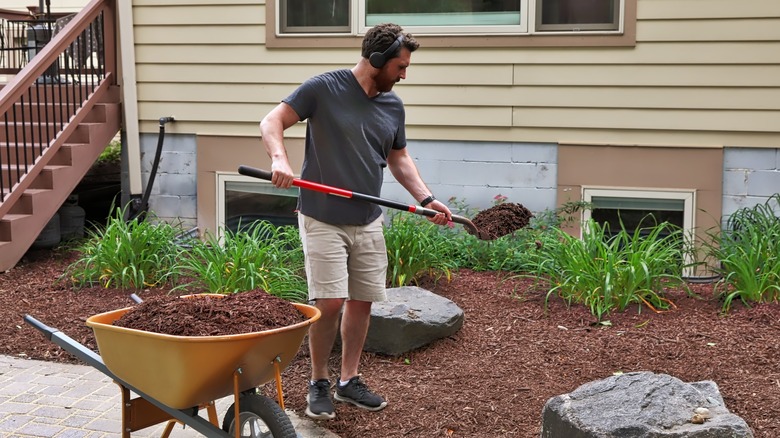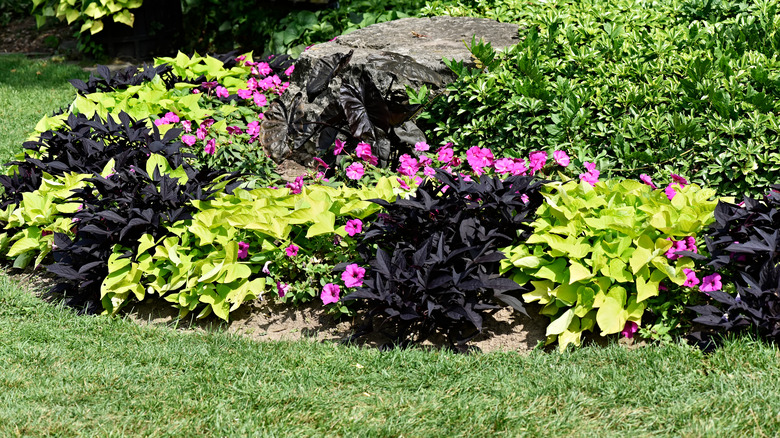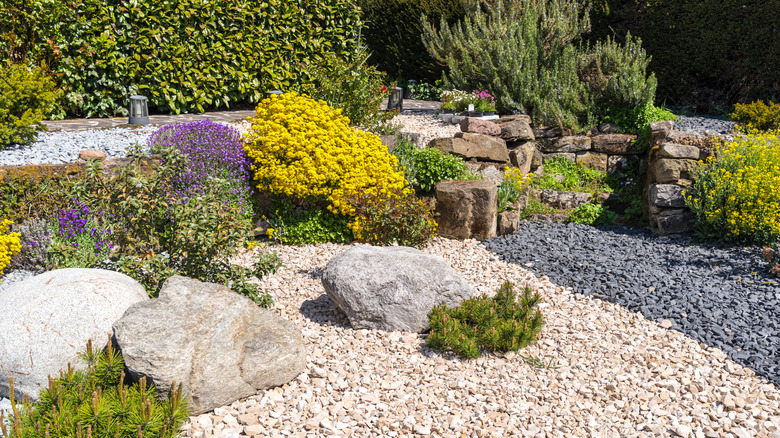Ditch Traditional Mulch & Use These Alternatives If You Suffer From Allergies
If you suffer from seasonal allergies, you're not alone. Millions in the United States find themselves sniffling, itching, and feeling all-around uncomfortable each spring as their immune systems react to pollen from plants, trees, grasses, and weeds. The good news is that with a few pro tips, you can enjoy your lawn allergy-free. For one, paying close attention to the material you're laying down around your plants will make a big difference. While mulch is essential to stopping weeds and helping keep your garden well hydrated, the wrong type can cause allergies to flare up. Popular natural options, like wood chips and bark, can encourage mold growth which, in turn, can make allergies worse. So ditch the traditional mulch and consider other landscape alternatives, namely oyster shell, plant groundcovers, or gravel.
And while you'll really want to avoid some plants, there are plenty of flowers that are suitable for people with allergies. Simply hone in on low-pollen or no-pollen varieties, such as hydrangeas, tulips, roses, and pansies. Similarly, choose low-allergy grasses like Bermuda, buffalo, and St. Augustine. You can also mix in allergy-friendly shrubs (think hibiscus and hydrangea), as well as fruit trees, maples, and pines. Once you've planted your favorites, use the right mulch and your allergies will thank you.
Organic mulch alternatives for allergy sufferers
When most people think of mulch, they think of wood chips or bark. However, mulch actually refers to any material that covers your garden's soil. It can be organic or synthetic, although natural options are often preferred as they help plants thrive while keeping weeds at bay. In both cases, there are plenty of allergy-friendly options. On the natural side, oyster shells are a great choice. In addition to being aesthetically pleasing, they'll help keep your soil's pH levels well-balanced and ensure that water drains properly. Simply spread a 2-inch layer over your soil in late spring or early summer, then immediately water the area to ensure the shells become properly mixed in with the ground and stay put through the sunny months to come.
Alternatively, you can also opt for a plant ground cover. Ground covers are living mulch that bring plenty of benefits to your yard, and creeping thyme and phlox are both low-maintenance, allergy-friendly options. In addition to keeping weeds at bay, they help grass and other plants get the moisture they need to grow lush and green — all while looking beautiful in the process.
Inorganic, allergy-friendly mulch alternatives
Although inorganic mulch options don't come with the same plant-boosting benefits as their organic counterparts, there are still some benefits to choosing a synthetic soil topper. For one, maintenance is practically reduced to zero. What's more, they won't quickly break down into the soil and need to be replenished each year, which can save you money in the long run. They're also available in a range of colors, shapes, and sizes to best match your design vision.
If you'd prefer to go the inorganic route, rocks and gravel are the most popular options. They're particularly handy when used in high-traffic areas where they can protect the soil and let plants grow more readily. It's important to note, however, that this allergy-friendly alternative works best when paired with plants that don't like a lot of water, as the rocks allow for quick drainage.
Ultimately, whether you choose an organic or inorganic solution, remember to never leave your soil bare. Not only is a covering important for garden health, but exposed soil can exacerbate allergies. By mulching your garden, you'll stop soil dust from being swept up into the air and breathe easier.


